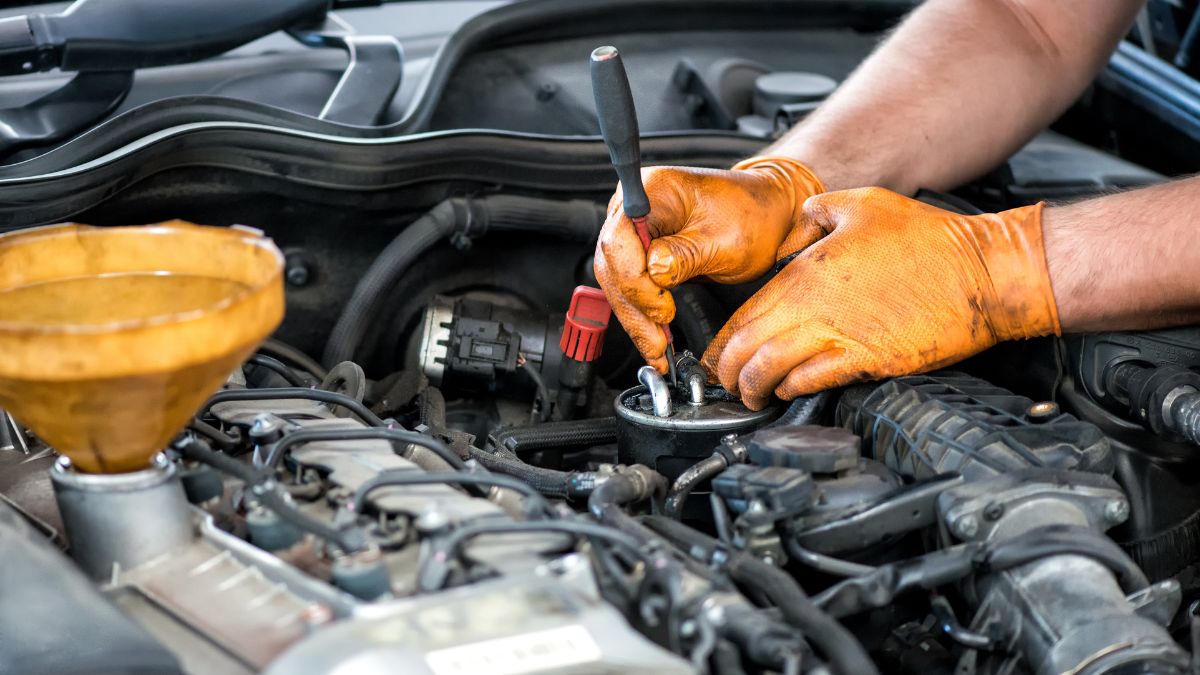
10 Essential Car Maintenance Tips Every Kenyan Driver Should Know
Owning a car in Kenya is more than just convenience — it’s a lifestyle. Whether you’re stuck in Nairobi’s snaking traffic, making early morning runs to Gikomba, or navigating the dusty roads of Kitengela, one thing is clear: car maintenance is not optional.
I’ve learned this the hard way. One time, my car overheated in the middle of Lang’ata Road during rush hour — all because I had ignored my coolant level for weeks. It cost me a whole engine top overhaul and plenty of stress. Since then, I’ve kept a mental checklist of must-do maintenance tips that I now live by — and I’m sharing them with you.
Let’s get into the 10 car care tips every Kenyan car owner should follow to avoid headaches, hefty repair bills and unexpected breakdowns.
1. Always Check Your Engine Oil
Engine oil is your car’s lifeblood. It keeps everything running smoothly, reduces wear and prevents overheating.
How often? Every 2 weeks or before any long trip — especially on highways like Nairobi to Mombasa.
Pro tip: Pull out the dipstick, wipe it, reinsert and check the level. If it’s dark or low, it’s time for a change or top-up.
Neglecting this one step can lead to engine damage — and trust me, that’s not cheap in Kenya.
2. Check Your Tyres Weekly
Our roads aren’t exactly tyre-friendly. From potholes in Rongai to rugged paths in Meru, tyre wear can creep up fast.
Check for:
- Punctures or cuts
- Uneven tread wear (which could mean poor alignment)
- Proper air pressure (refer to your car door sticker or manual)
Maintaining correct tyre pressure also improves fuel economy — something we all appreciate with fuel at KES 200+ per litre!
3. Don’t Forget the Battery
Batteries in Kenya often suffer from the heat, dust and short trips that don’t allow full charging. I once had mine die while buying mandazis at a petrol station — embarrassing!
What to do:
- Clean the terminals regularly
- Ensure it’s properly secured
- Replace every 2–3 years or when starting becomes sluggish
A simple battery check could save you from being stranded.
4. Brakes Are Not Negotiable
Brake failure is one of the most scary — and preventable — causes of accidents in Kenya. If you hear squeaking or grinding, it’s your car begging for attention.
What to check:
- Brake pads every 6 months
- Brake fluid level and color
- Responsiveness when pressing the pedal
Don’t wait for that terrifying moment when the brakes just don’t grab.
5. Monitor Your Coolant
Kenyan traffic jams + high heat = a recipe for overheating. That’s where your coolant comes in.
Make it a habit to:
- Check coolant level weekly
- Use the correct type (mixing can damage your system)
- Never open the radiator cap when hot!
A neglected coolant system can cook your engine — literally.
6. Wipers Matter (Especially in Rainy Season)
You’ll only realize how important your wipers are when a sudden downpour hits while driving on Thika Road and your vision goes blurry.
Replace your wipers at least once a year.
Don’t wait until they scratch your windshield or streak water.
Good visibility = safe driving.
7. Clean or Replace the Air Filter Regularly
Ever driven through dusty towns like Athi River or Kitengela? Your air filter works overtime in such environments.
Replace it every 10,000–15,000 km or sooner if you’re always in dusty areas.
A clogged filter reduces fuel efficiency and chokes your engine.
This is an easy fix that makes a big difference in performance.
8. Don’t Ignore Warning Lights
That little check engine light is like your car whispering, “Something’s wrong.”
Common causes:
- Faulty sensors
- Exhaust or fuel system issues
- Loose gas cap (yes, really!)
Get it checked ASAP at a reputable garage — even if the car still runs. Delaying may turn a small fix into a full-blown repair.
9. Stick to the Service Schedule
I know — it’s tempting to delay service because the car “feels fine.” But skipping your routine service is like skipping check-ups at the doctor.
Follow your manufacturer’s service intervals, especially for oil, filters, spark plugs, and belts.
This not only keeps your car healthy but boosts its resale value too.
In fact, regular servicing helped me sell my old Demio fast — the buyer was impressed by my records.
10. Drive Smarter, Not Harder
Maintenance isn’t just what happens under the bonnet — it’s also how you drive.
Avoid:
- Harsh acceleration or braking
- Overloading (seriously, your car’s not a pickup)
- Speeding over bumps or potholes
The better you treat your car, the longer it’ll serve you. Treat it like a trusted friend, not a beast of burden.
Bonus Tip: Keep Records
Keep a simple notebook or use a mobile app to track:
- Oil changes
- Brake pad replacements
- Tyre changes
- Battery ageThese records are a lifesaver when selling your car or explaining maintenance history to a mechanic.
Conclusion
Driving a car in Kenya is awesome — but only if you take care of it. Consider these 10 tips your car’s survival kit in the Kenyan roads.
Share with fellow drivers and bookmark this!